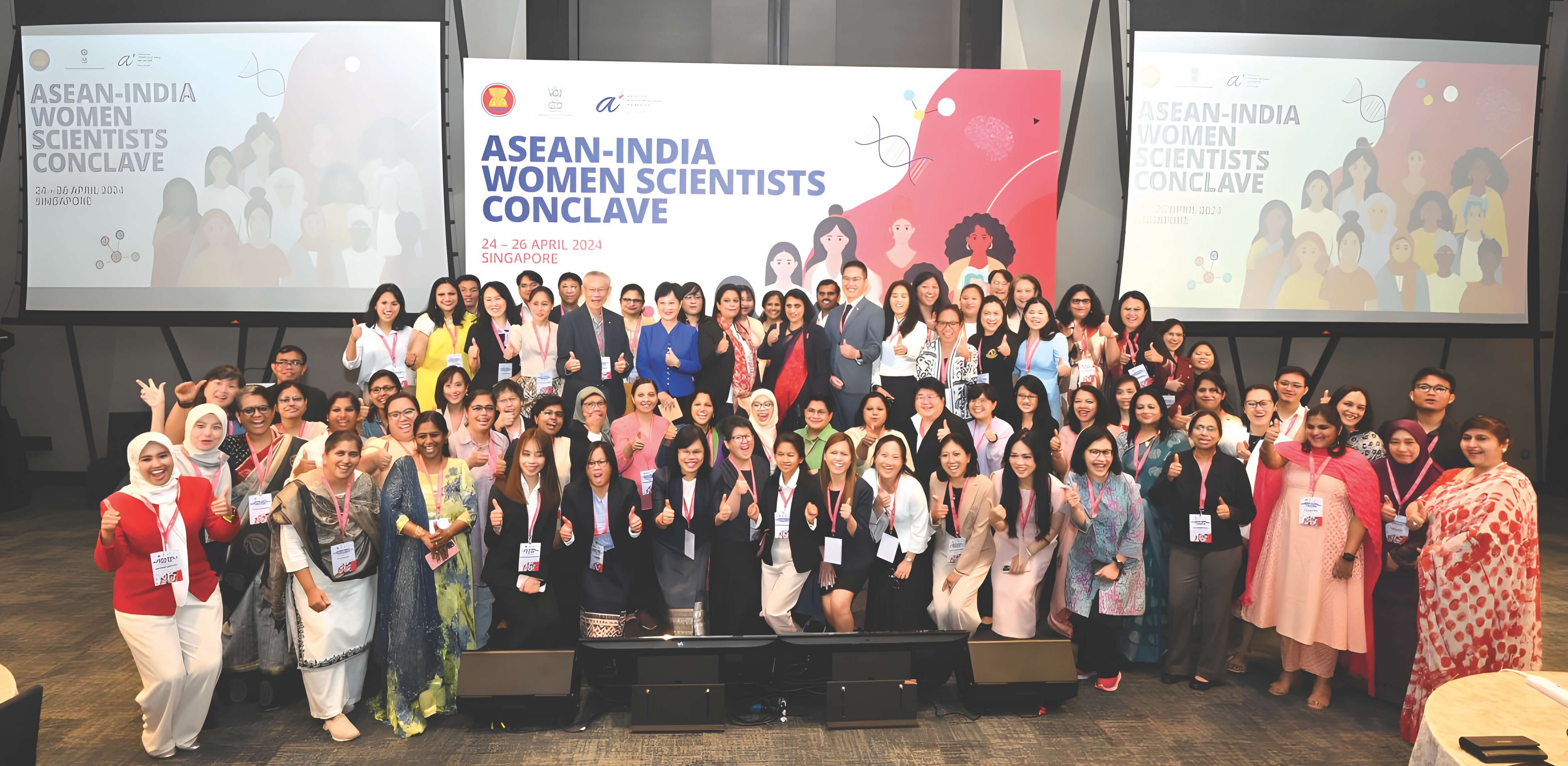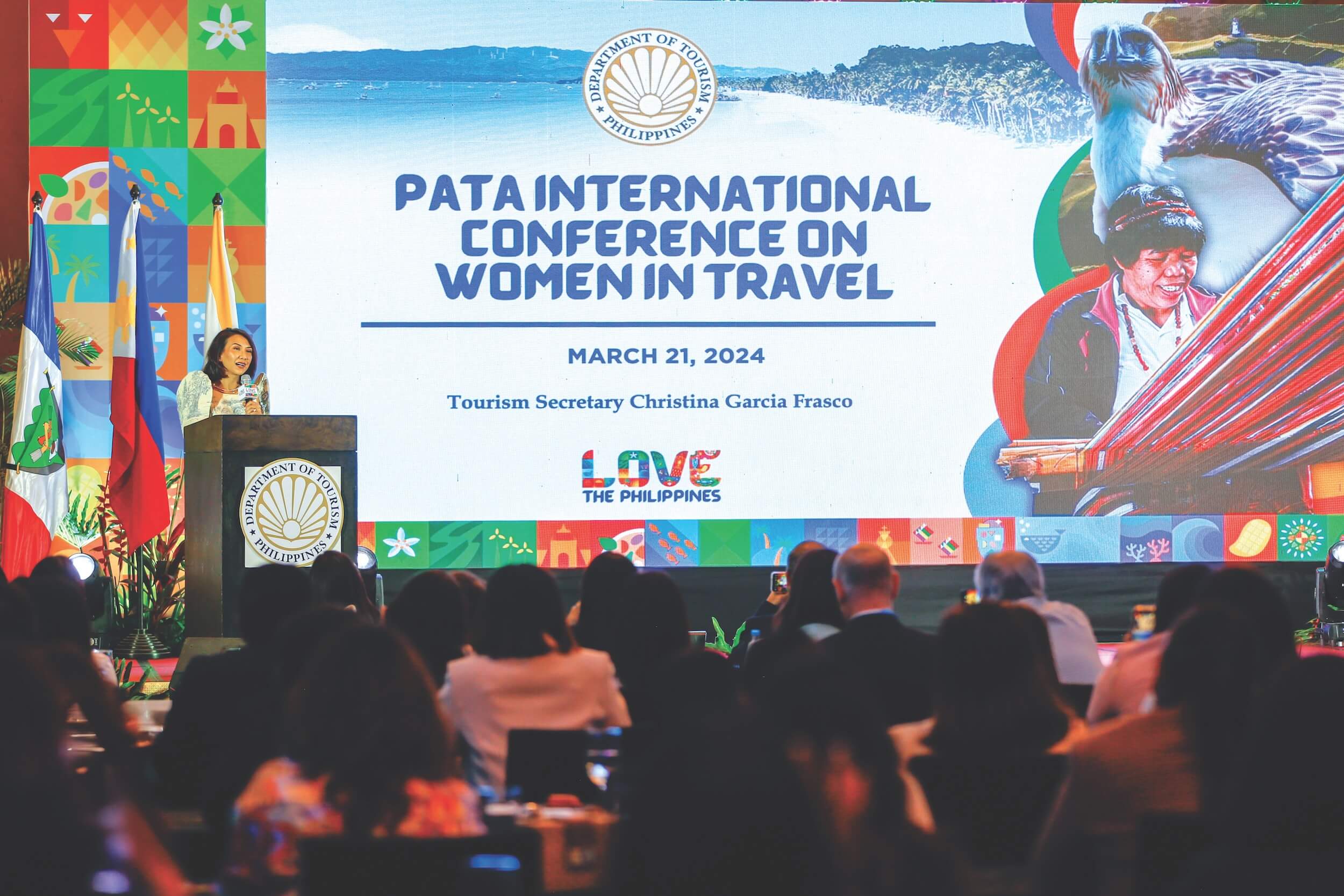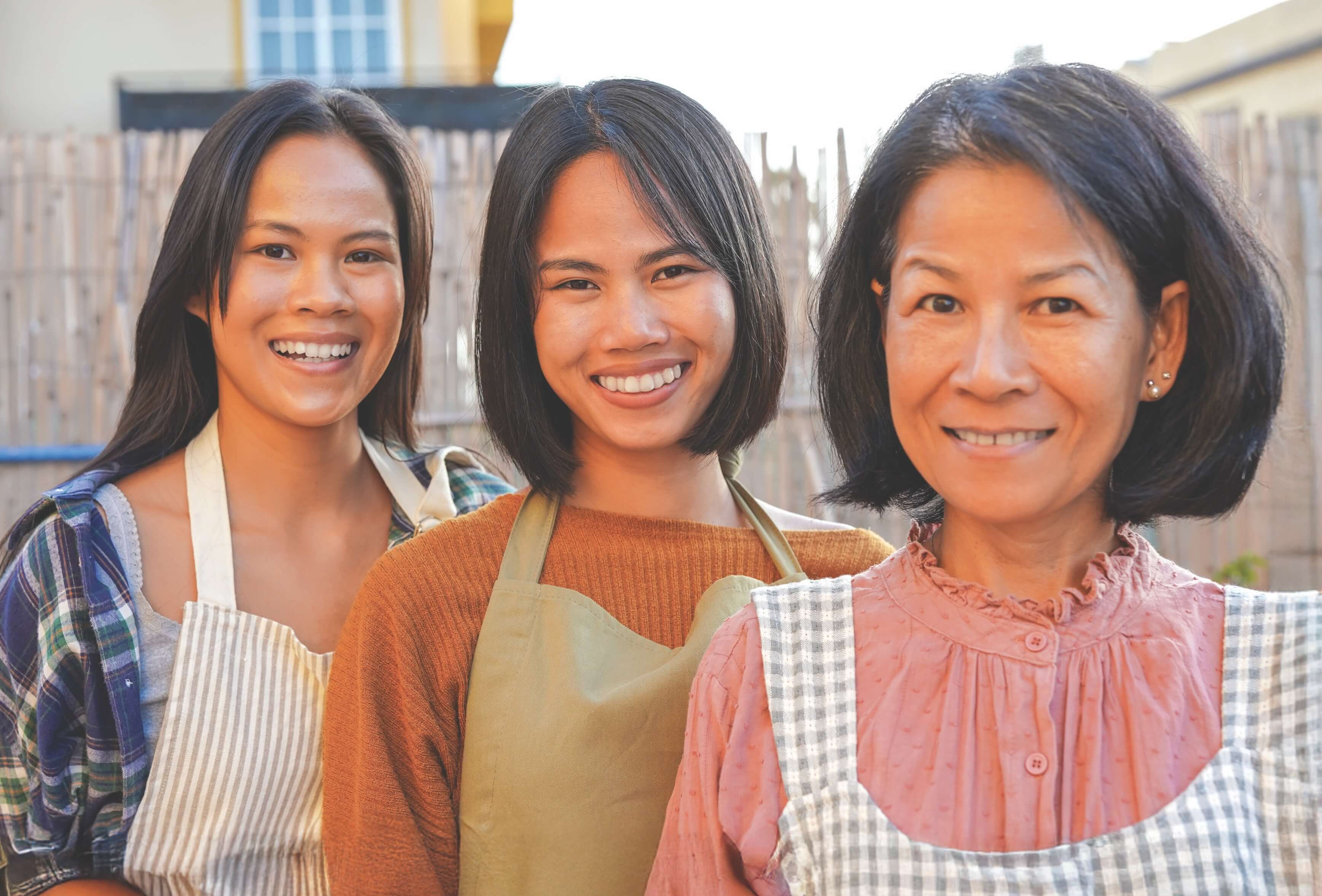



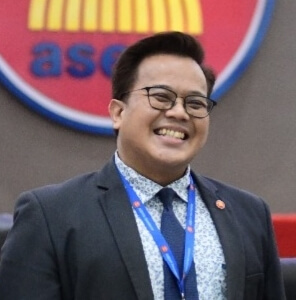
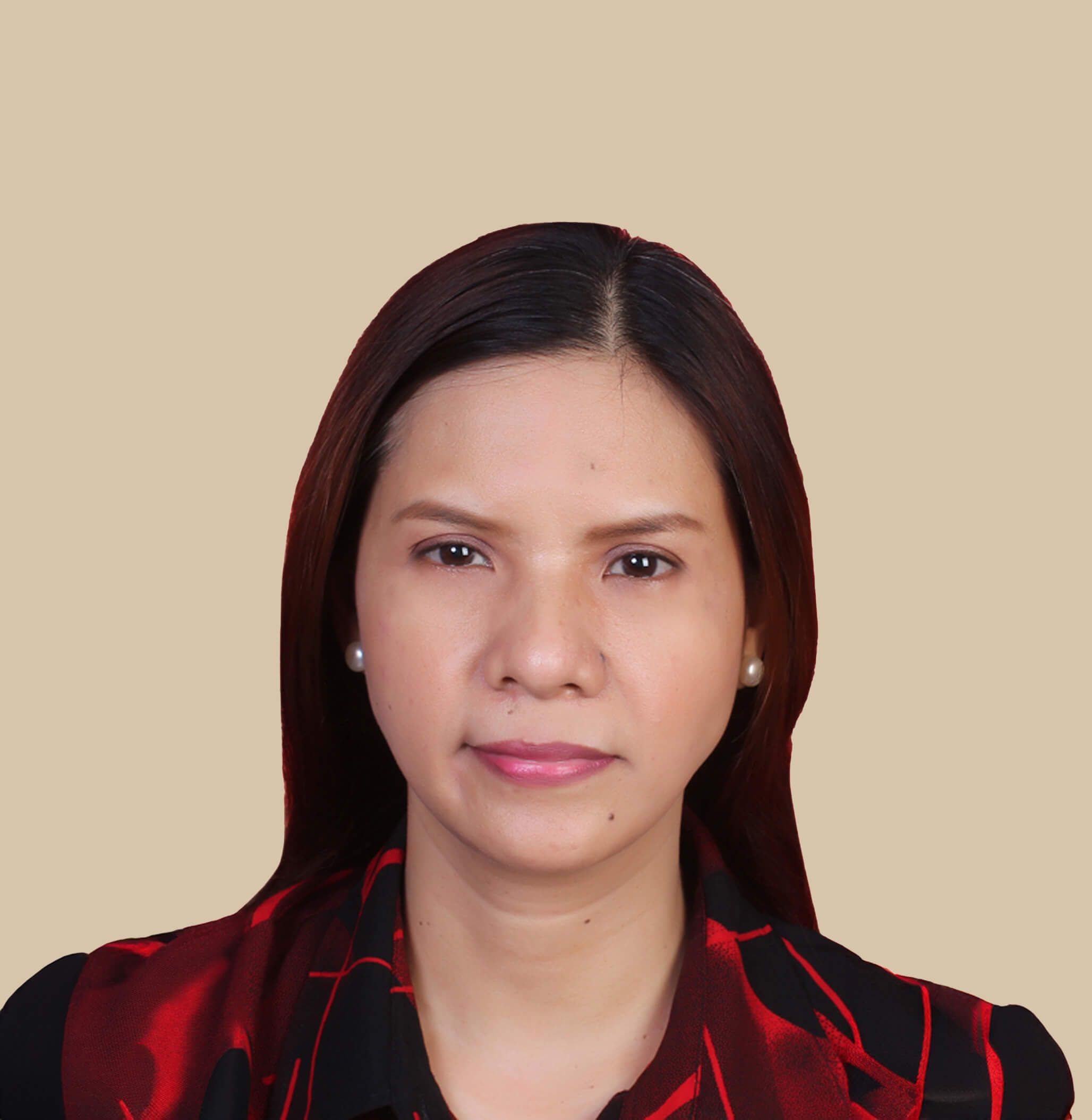
ASEAN firmly believes that bridging the gender gap and ensuring that all women and girls realise their fullest potentials are sine qua non to the realisation of a fairer, inclusive, and resilient ASEAN Community. Through the years, ASEAN has mobilised political consensus and placed high-level political commitment on introducing and institutionalising these perspectives in multiple areas of cooperation across the three ASEAN Community pillars.
ASEAN cooperation on advancing gender equality and women empowerment is blazing the trail, imbued with respect and commitment to human rights, social justice, peace and security, and social progress for all women and girls. Amidst uncertainty and the uneven and gendered impacts of global threats and challenges, such as the COVID-19 pandemic, ASEAN has remained a strong and steadfast champion of gender equality and empowerment of all women and girls.
ASEAN is committed to current and future efforts on advancing gender equality and women empowerment beyond the common milieu of women and men inequality issues. This is evidenced by the constellation of mutually reinforcing and complementary ASEAN frameworks that enshrine ASEAN’s high-level political commitment as well as strong regional solidarity and alliance.
ASEAN’s breakthrough on the elimination of all forms of violence and discrimination against women and children, including those in the context of migration and trafficking-in-persons, is exhibited through the Declaration on the Elimination of Violence Against Women and Elimination of Violence Against Children in ASEAN (2013). This has been translated into the ASEAN Regional Plan of Action on the Elimination of Violence Against Women (ASEAN RPA on EVAW, 2016). This plan of action is the first of its kind in the world and a hallmark regional instrument in view of realising ASEAN’s commitments under the Convention on the Elimination of All Forms of Discrimination against Women (CEDAW) which all ASEAN Member States have ratified.
Notably, the adoption of the Declaration on the Gender-Responsive Implementation of ASEAN Community Vision 2025 and Sustainable Development Goals (2017) has drawn urgent attention to the deeply rooted gender gaps that affect women and girls, and their agency.
Through the Action Agenda on Mainstreaming Women’s Economic Empowerment (WEE) (2017), ASEAN encouraged all ASEAN Member States to mainstream women’s economic empowerment, particularly in innovation, trade, and inclusive business.
A cross-cutting agenda
ASEAN recognises that the women, peace and security agenda is a cross-cutting issue, and it is giving attention to the deepening and gendered impacts of non-traditional security issues affecting women and children. The ASEAN Regional Plan of Action on Women, Peace and Security (2022) outlines ASEAN’s priority actions in the four pillars of the women, peace and security agenda namely: (i) prevention; (ii) protection; (iii) participation; and (iv) relief and recovery. A dedicated pillar on implementation mechanisms and arrangements has been included to institutionalise cross-sectoral and inter-pillar cooperation while facilitating effective stakeholder engagements.
The development of this landmark regional plan of action has been preceded by the Joint Statement on Women, Peace and Security (2017) and the ASEAN Regional Study on Women, Peace and Security in ASEAN (2021), key milestones which exemplify how the women, peace and security agenda urgently matter to ASEAN.
The nexus of gender equality and disability inclusion, especially for women with disabilities and older women, cannot be undermined. Adhering to the principle of gender equality, the ASEAN Enabling Masterplan 2025: Mainstreaming the Rights of Persons with Disabilities (2018) has been pivotal in ensuring that the most vulnerable women with disabilities are afforded dignity, respect and equal access, empowering them to live life to the fullest.
The foregoing regional policy frameworks have guided ASEAN’s cooperation on advancing gender equality and women’s empowerment. It is important to highlight that these frameworks leverage on regional cooperation to catalyse actions both at the national and regional levels. These frameworks cover a myriad of issues that touch upon the lives of women, and how they can be effectively engaged as agents of transformative change.
Regional mechanisms and platforms
ASEAN has established dedicated regional mechanisms and platforms to translate its political commitments into concrete actions. These mechanisms and platforms facilitate strong linkages and flow of regional cooperation into actions at the national level, and takes into consideration developments at the national level to inform regional cooperation at the ASEAN level.
At the forefront of such mechanisms are the ASEAN Committee on Women (ACW) and the ASEAN Commission on the Promotion and Protection of the Rights of Women and Children (ACWC). They support ASEAN Sectoral Bodies, development and dialogue partners, as well as civil society organisations and stakeholders on building meaningful and substantive engagements.
The ASEAN Committee on Women was established in 2001 as a subsidiary body of the ASEAN Ministerial Meeting on Women or AMMW. It is implementing its third work plan, with the current iteration covering 2020-2025. The work plan covers a wide range of thematic areas namely: (i) gender data and statistics; (ii) gender mainstreaming; (iii) gender-responsive climate and disaster resilience; (iv) gender approach to enhancing safety and protection of women and girls; (v) women, peace and security; (vi) women’s economic empowerment and future of work; and (vii) gender-responsive governance and leadership.
On the other hand, the ASEAN Commission on the Promotion and Protection of the Rights of Women and Children was inaugurated in 2012 and reports to the ASEAN Ministerial Meeting on Social Welfare and Development or AMMSWD. It is, likewise, implementing its third work plan covering the period 2021-2025. In fulfilment of its mandate, ACWC’s work plan covers the following key results areas: (i) promoting women and children’s rights; (ii) building partnerships and platforms to advance women and children’s rights; (iii) deepening awareness and institutionalising women and children’s rights; and (iv) strengthening institutional and stakeholder capacities.
ASEAN has also established the ASEAN Women Entrepreneurs Network or AWEN. It is a regional network of national women entrepreneurs who own or manage micro-, small- and medium-sized enterprises that engages with economic sectors in the ASEAN region. Through the years, AWEN has served as a regional forum for ASEAN women entrepreneurs to share information, knowledge and experiences, provide assistance to fellow women entrepreneurs, and network with regional and international organisations of women entrepreneurs.
Leaving no woman and girl behind
The steady emergence of these ASEAN frameworks, instruments, and platforms demonstrates that ASEAN’s commitment in advancing gender equality and the empowerment of all women and girls are constantly reaching new heights. The frameworks also fulfil another significant role—they open and carve out policy spaces for women and girls who remain invisible and exist at the fringes of society.
The women at most risk of exclusion and marginalisation are those belonging to ethnic minorities, residing in rural areas, coming from poor households, experiencing disabilities, and living or working as migrants. The ASEAN Gender Outlook: Achieving the SDGs for All and Leaving No Woman or Girl Behind (2021) revealed that these women are more prone to discrimination, and that when multiple forms of discrimination overlap, the barriers they face are heightened.
Persistent absolute poverty in the region has made the work of women invisible. In the ASEAN region, rural areas experience poverty twice as much compared to urban areas. Women in agricultural value chains often face the challenge of being rendered invisible. While they actively participate, their contributions are frequently relegated to the realm of reproductive work and stereotyped roles, often going unrecognised in national accounts and lacking monetary acknowledgment at the household level. Despite the invisible nature of rural women’s agriculture work, their contributions to farm and off-farm activities ensure food security at the household level and spur the growth of local rural economies.
Ensuring the protection of women and girls
Violence against women and girls increased in tandem with unpaid care and domestic work during the COVID-19 pandemic. Such violence—physical, psychological, or economic—against women and girls are often hidden and unreported. The region’s post-pandemic recovery is an opportunity to rethink and re-imagine the concept of work—undertaken by women and men, in all settings, and in rural and urban spaces—to recognise, reduce, and redistribute unpaid care work, ensure sufficient remuneration and representation, and uphold the rights of women.
The demographic shifts in the region show that ASEAN is home to ageing societies but also a young population. Women tend to live longer compared to their male counterparts. A closer look reveals that older women, those well past beyond the age of 60, remain hidden. Older women bear the brunt of unpaid care and domestic work well into their old age. They have limited access to social protection and livelihood opportunities. Older persons primarily work in the informal sector, with less security and less social protection. In the region, coverage of pension is low in most countries, mostly out of pocket contributions.
The phenomenon of child marriage also continues to be an issue in the region. From child marriage based on deeply rooted customs and beliefs, to early voluntary unions and adolescent pregnancies, such an occurrence is correlated with risks on health as well as increased exposure to gender-based violence.
The break-neck speed of advances in technology and innovations is adding a layer of complexity on achieving gender equality in the region. The pervasiveness of mobile gadgets that are connected to the internet has led to an increase in cybercrime committed against children, particularly girls and young women.
The impacts of climate change on women and girls in ASEAN is an emerging concern. The influence of climate change on gendered migration decisions needs further investigation. Climate change impacts on women’s responsibility for food security at the household level, and risk of displacement due to slow-onset disasters such as droughts and rising sea levels are further emerging issues that ASEAN will need to adequately address.
Lastly, on the discourse on preventing violence extremism, women and girls are either perceived as victims or willing perpetrators. There is a need to move beyond this binary approach. Unpacking these complex circumstances require a recognition of their roles as recruiters and campaigners, as wives and daughters of those who are radicalised, and as abductees who are forced to join violent extremist groups. These women are also at the forefront of building and nurturing peace at the community level. By harnessing indigenous knowledge, engaging in community-based peace building initiatives, they act as active agents of peace and security.
Putting women at the forefront of post-pandemic recovery
Increasing the role and status of women in society has been at the centre of the ASEAN Community Vision 2025 and the ASEAN Comprehensive Recovery Framework. With the COVID-19 pandemic compounding the economic constraints faced by women for the past three years, ASEAN seizes opportunities to cushion and stimulate resilience-building efforts through a gender-responsive and inclusive economic ecosystem that will benefit all women in the region.
In fulfilment of its convening mandate, ASEAN has articulated the role of women in recovering from the COVID-19 pandemic through the “ASEAN Ministerial Dialogue on Strengthening Women’s role for Sustainable Peace and Security” held in September 2020, and the First ASEAN Women Leaders’ Summit “Women’s Role in Building a Cohesive, Dynamic, Sustainable and Inclusive ASEAN Community in a Post COVID-19 World” held in November 2020.
Indeed, overcoming the uncertainties of the changing world that widened the gender-divide and increased inequalities calls for high-level commitment and regional strategic direction to sustain the position of ASEAN as a change-focused actor on gender and inclusion issues.

Heeding this call, ASEAN pioneered the ASEAN Gender Mainstreaming Strategic Framework that was launched in January 2022. The Framework adopts a whole-of-ASEAN approach in the development of medium- and long-term strategies for mainstreaming gender perspectives at the ASEAN and Member State level. Its ongoing implementation has led to robust engagements between and among ASEAN Sectoral Bodies as well as women’s organisations and various stakeholders on gender mainstreaming. The cooperation takes form in developing gender equality frameworks, action plans, and tools and guidelines in various sectors such as labour, disaster management, MSMEs, agriculture, and political security, among others.
ASEAN’s agenda on gender mainstreaming is also moving forward through taking stock of sectoral work plans and identifying strategies to engender such plans. ASEAN and its partners also affirmed commitment to support women at the ASEAN Women, Peace and Security Summit in Yogyakarta on 6-7 July 2023.
The fundamental principle of addressing gender inequalities to reduce poverty is given life by ASEAN most recently through the Declaration on Building a more Sustainable, Inclusive and Resilient Future: Unlocking Women’s Entrepreneurship in ASEAN (2022). This Declaration mobilises collective action to address systemic and institutional barriers faced by women, especially women with disabilities and those in vulnerable situations, to entrepreneurship and broader economic empowerment. It urges ASEAN Member States to strengthen policy and legislative frameworks and promote gender-responsive investments and targeted measures to enable women to adapt, respond to, and recover from crisis situations. This includes the provision of gender-responsive and accessible entrepreneurship support services for women.
Recognising and valuing women’s unpaid care and domestic work is also key in addressing gender inequalities. ASEAN adopted the ASEAN Comprehensive Framework on Care Economy (2021) which charts the strategic priorities and maps the relevant ASEAN sectoral initiatives for the realisation of an ASEAN Care Economy. In particular, these priorities include: (i) promoting healthy ageing; (ii) enhancing the role of the care economy in building a disaster resilient ASEAN; (iii) accelerating technology innovations and digital transformation; (iv) building stronger and resilient families; (v) enhancing social protection/leaving no one behind; and (vi) strengthening resilience and care for the environment.
Conclusion
Moving forward, there is much enthusiasm and confidence on ASEAN’s pioneering work on advancing gender equality and empowerment of all women and girls. As ASEAN continues to play a central and strategic role, the Outlook on the Indo-Pacific, there are opportunities to showcase ASEAN’s achievements on gender equality and women’s empowerment. These are in the areas of digital economy, MSMEs, science and technology, active ageing and innovation, climate change and disaster risk reduction, and the attainment of the SDGs.
The shifting perspectives that recognise women as rightsholders and with untapped potentials and capacities to participate and catalyse change in the society is ardently rallied by ASEAN. Bringing the voices of the most invisible and most vulnerable women and girls in society into the ecosystem of gender equality and women empowerment has allowed ASEAN to take a quantum leap on mainstreaming the rights of women and girls, ensuring that no one is left behind.




